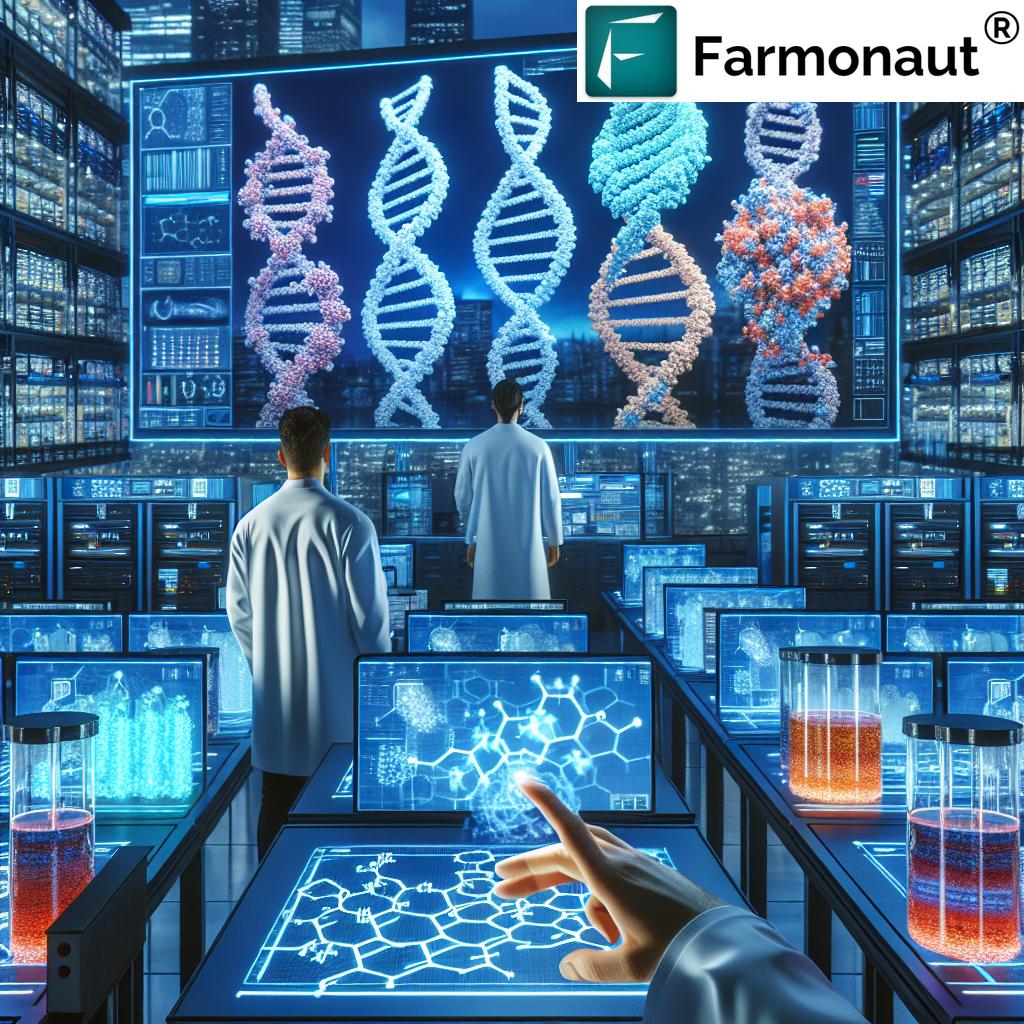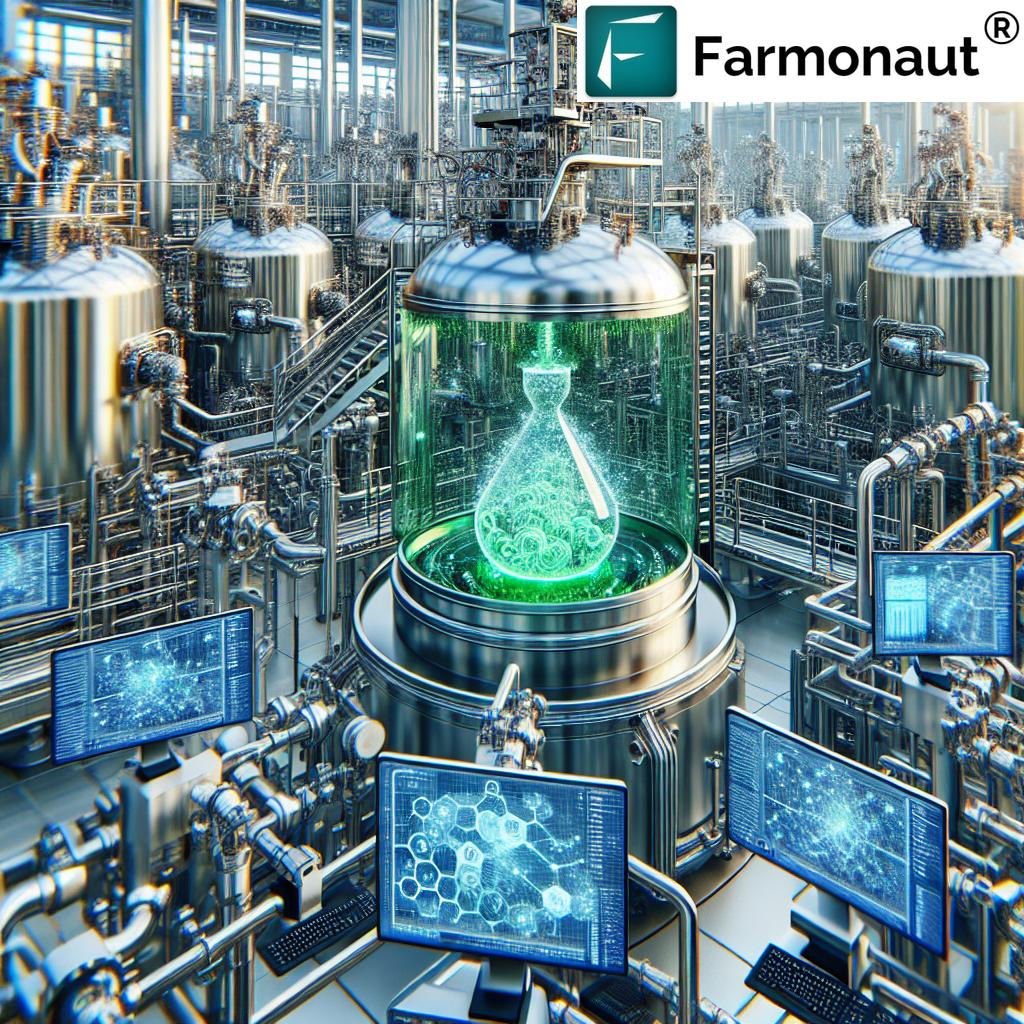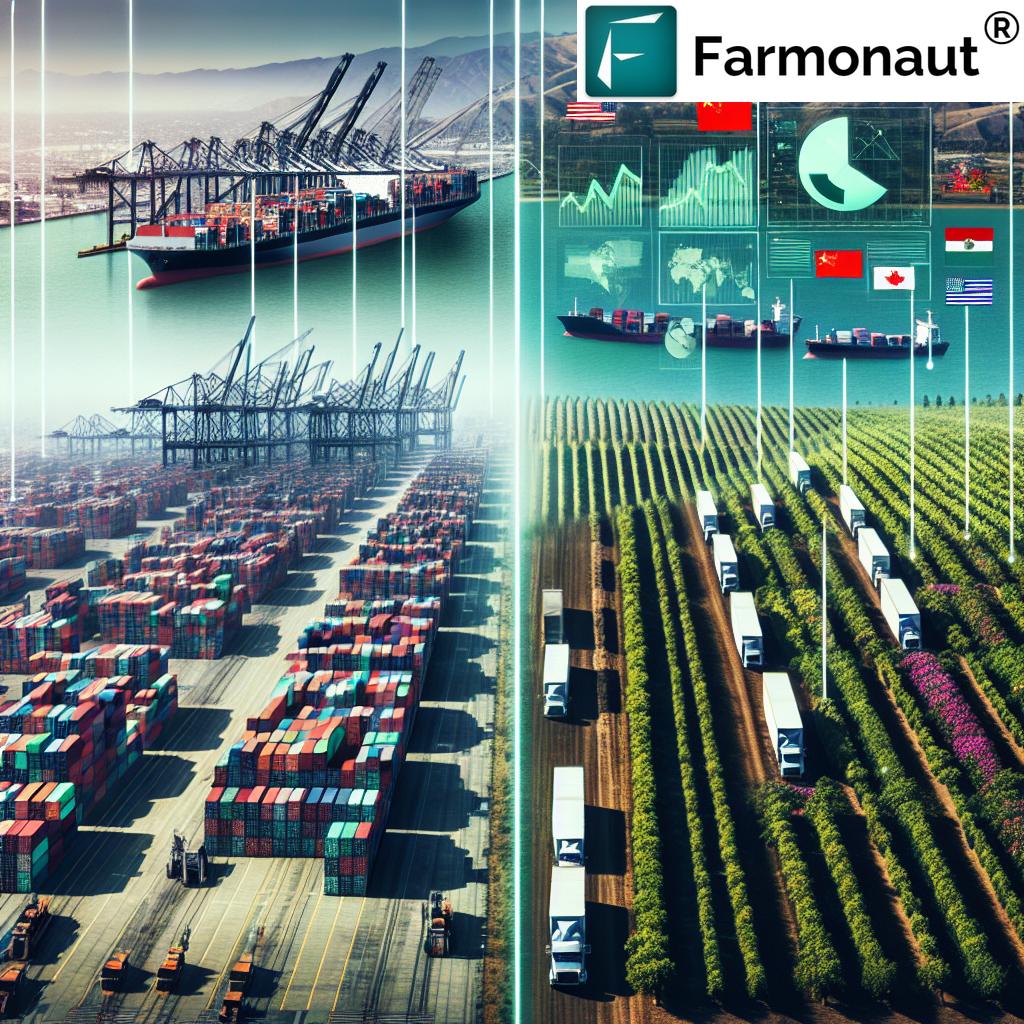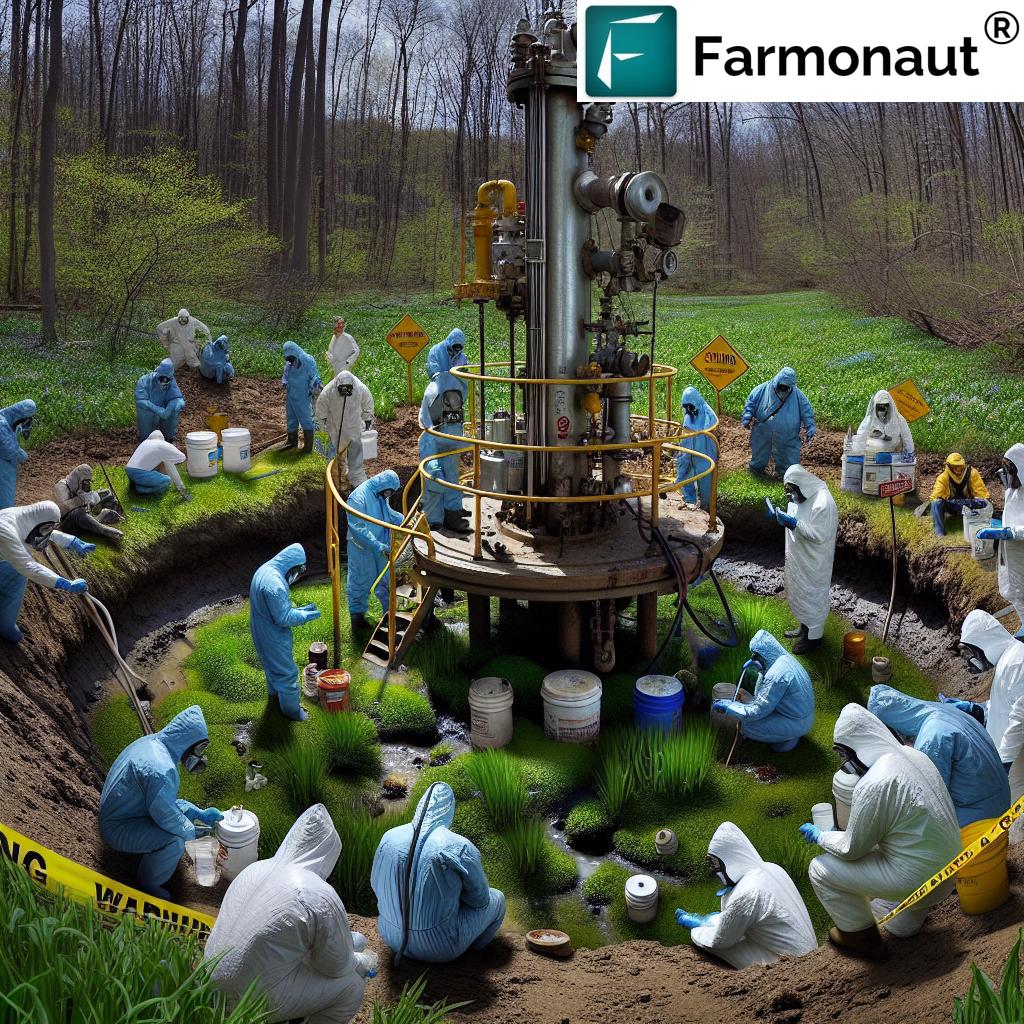Revolutionizing Green Chemistry: AI-Driven Enzyme Engineering Transforms Sustainable Manufacturing in San Diego
“AI-driven enzyme engineering has increased chemical transformation efficiency by up to 100 times in some sustainable manufacturing processes.”
“AI-driven enzyme engineering has increased chemical transformation efficiency by up to 100 times in some sustainable manufacturing processes.”
In the heart of San Diego, CA, a revolution in green chemistry is unfolding, driven by the power of artificial intelligence and computational enzyme engineering. At Quantumzyme Corp., we are spearheading this transformation, harnessing the potential of sustainable biocatalysts to reshape global industries through precision biocatalysis. Our mission is clear: to unlock the full potential of nature’s catalysts, enabling industries to produce more sustainably, more efficiently, and with greater precision.
The Dawn of AI-Driven Enzyme Engineering
Computational enzyme engineering represents a paradigm shift in how we approach chemical processes. By leveraging advanced molecular modeling, quantum chemistry, and artificial intelligence, we are creating high-performance enzymes that solve critical challenges across various industries, including pharmaceuticals, agriculture, energy, and specialty chemicals.
Our proprietary platform integrates computational biology, machine learning, and molecular simulation to dramatically accelerate the discovery-to-deployment timeline for novel enzymes. This AI-driven enzyme design approach allows us to engineer biocatalysts with unprecedented precision, enabling chemical transformations with higher selectivity, lower energy consumption, and significantly reduced environmental impact.

Transforming Industries Through Green Chemistry Solutions
The impact of our work extends far beyond the laboratory. We are actively reshaping the landscape of industrial biotechnology, driving the transition to a greener, more efficient global economy. Here’s how our enzyme-based chemical processes are revolutionizing key sectors:
- Pharmaceuticals: Our sustainable biocatalysts are enabling cleaner, more efficient drug synthesis, reducing waste and environmental impact in pharmaceutical production.
- Agriculture: By developing enzymes that enhance crop protection and nutrient uptake, we’re contributing to more sustainable farming practices. Learn more about innovative agricultural technologies at Farmonaut’s Crop Plantation and Forest Advisory.
- Energy: Our engineered enzymes are paving the way for more efficient biofuel production and enhanced energy storage solutions.
- Specialty Chemicals: We’re revolutionizing the production of fine chemicals, polymers, and other industrial products with our precision biocatalysis approach.
The Quantumzyme Advantage: Precision, Efficiency, and Sustainability
At Quantumzyme, we believe that enzymes are the future of clean industry. Our work is about enabling that future – faster, smarter, and more sustainably. Whether it’s making a drug safer to produce or turning waste into value, we’re here to catalyze that transformation.
Our business model combines deep tech R&D with scalable licensing, allowing for rapid adoption across industries while maintaining a lean, innovation-focused operation. We plan to commercialize our enzyme technology through strategic partnerships, licensing agreements, and co-development initiatives with leading companies in various sectors.
The Science Behind Our Success
Our success in revolutionizing green chemistry stems from our unique approach to enzyme engineering:
- Quantum Mechanics Integration: We utilize quantum mechanical calculations to understand enzyme-substrate interactions at the atomic level, allowing for precise modifications to enhance catalytic activity.
- Machine Learning Algorithms: Our AI models predict enzyme performance based on sequence and structural data, significantly reducing the time and resources needed for experimental testing.
- Molecular Dynamics Simulations: We employ advanced simulations to study enzyme flexibility and stability under various conditions, ensuring our engineered enzymes perform optimally in industrial settings.
- High-Throughput Virtual Screening: Our computational platform can evaluate millions of potential enzyme variants, identifying the most promising candidates for experimental validation.
“Computational enzyme design has reduced waste in pharmaceutical production by up to 90% compared to traditional chemical synthesis methods.”
Comparative Analysis: Traditional vs. AI-Driven Enzyme Engineering
| Aspect | Traditional Enzyme Engineering | AI-Driven Enzyme Engineering |
|---|---|---|
| Design Process | Trial and error, rational design | Data-driven, predictive modeling |
| Time to Develop New Enzymes | 1-5 years | 3-12 months |
| Efficiency in Chemical Transformations | Moderate improvements | Up to 100x increase |
| Environmental Impact | Reduced compared to chemical catalysts | Significantly lower, near-zero waste |
| Applications in Industry | Limited to specific sectors | Broad range across multiple industries |
| Cost-Effectiveness | Variable, often high development costs | More predictable, lower overall costs |
| Scalability | Challenging, often requires extensive optimization | Highly scalable, built-in optimization |
| Precision in Molecular Modeling | Limited, based on available structural data | High precision, integrates multiple data sources |
| Adaptability to Different Chemical Processes | Often specialized for specific reactions | Highly adaptable, can be quickly modified |
| Integration with Existing Manufacturing Systems | Can be challenging, may require process changes | Designed for seamless integration, minimal disruption |
Real-World Applications and Impact
Our AI-driven enzyme engineering is making significant strides in various industries:
- Pharmaceutical Manufacturing: We’ve developed enzymes that enable the synthesis of complex drug molecules with fewer steps, higher yields, and dramatically reduced waste. This not only improves the economics of drug production but also aligns with the industry’s push towards greener manufacturing practices.
- Biofuel Production: Our engineered enzymes are breaking down cellulosic biomass more efficiently, making advanced biofuels more cost-competitive with fossil fuels. This contributes to the global effort to reduce carbon emissions in the transportation sector.
- Plastic Recycling: We’re tackling the global plastic waste crisis by developing enzymes that can break down plastics into their chemical building blocks, enabling true circular recycling of these materials.
- Food Processing: Our enzymes are improving the efficiency of food production processes, from enhancing the extraction of plant-based proteins to reducing energy consumption in dairy product manufacturing.
For industries looking to enhance their sustainability efforts, tools like Farmonaut’s Carbon Footprinting solution can complement our enzyme-based approaches by providing detailed insights into environmental impact.
The Future of Green Chemistry and Sustainable Manufacturing
As we look to the future, we see enormous potential for AI-driven enzyme engineering to continue transforming industries and addressing global challenges:
- Carbon Capture and Utilization: We’re developing enzymes that can efficiently capture CO2 and convert it into valuable chemicals, contributing to climate change mitigation efforts.
- Personalized Medicine: Our technology is enabling the development of enzymes for on-demand, point-of-care drug synthesis, paving the way for truly personalized treatments.
- Advanced Materials: We’re exploring enzyme-catalyzed synthesis of novel materials with unique properties, from self-healing polymers to bio-based electronics.
- Water Treatment: Our engineered enzymes are showing promise in breaking down persistent pollutants and microplastics in water systems, addressing critical environmental concerns.
The potential of these technologies extends beyond traditional industrial applications. For instance, in agriculture, AI and satellite technology are revolutionizing farm management practices. Learn more about these advancements at Farmonaut’s Large Scale Farm Management solutions.
Overcoming Challenges and Ensuring Responsible Innovation
While the potential of AI-driven enzyme engineering is immense, we recognize the importance of addressing challenges and ensuring responsible innovation:
- Ethical Considerations: We are committed to transparent and responsible use of AI in our research and development processes.
- Regulatory Compliance: We work closely with regulatory bodies to ensure our engineered enzymes meet all safety and environmental standards.
- Education and Workforce Development: We’re investing in training programs to build a skilled workforce capable of advancing this technology.
- Collaborative Research: We believe in the power of collaboration and actively engage with academic institutions and industry partners to drive innovation forward.

Join the Green Chemistry Revolution
At Quantumzyme, we’re not just developing technology; we’re catalyzing a sustainable future. Our AI-driven enzyme engineering is transforming industries, reducing environmental impact, and opening new possibilities for clean, efficient manufacturing.
We invite industries, researchers, and innovators to join us in this revolution. Whether you’re looking to enhance your manufacturing processes, develop new sustainable products, or explore the frontiers of green chemistry, our team is ready to collaborate.
For those interested in staying at the forefront of agricultural innovation, we recommend exploring Farmonaut’s suite of precision agriculture tools. These technologies complement our work in enzyme engineering, particularly in sustainable farming practices.
Frequently Asked Questions
- What is AI-driven enzyme engineering?
AI-driven enzyme engineering uses artificial intelligence and machine learning algorithms to design and optimize enzymes for specific industrial applications, resulting in more efficient and sustainable chemical processes. - How does computational enzyme engineering differ from traditional methods?
Computational enzyme engineering uses advanced algorithms and molecular modeling to predict and design enzyme structures and functions, significantly reducing the time and resources required compared to traditional trial-and-error methods. - What industries can benefit from sustainable biocatalysts?
Sustainable biocatalysts have applications across various industries, including pharmaceuticals, agriculture, energy, food processing, and specialty chemicals manufacturing. - How do engineered enzymes contribute to sustainability?
Engineered enzymes enable more efficient chemical transformations, reduce waste, lower energy consumption, and often allow for the use of renewable feedstocks, all contributing to more sustainable manufacturing processes. - What is the future outlook for green chemistry and enzyme engineering?
The future of green chemistry and enzyme engineering is promising, with potential applications in carbon capture, personalized medicine, advanced materials, and environmental remediation, among others.
Conclusion: Catalyzing a Sustainable Future
As we stand at the forefront of this green chemistry revolution, we at Quantumzyme are committed to pushing the boundaries of what’s possible with AI-driven enzyme engineering. Our work in San Diego is not just about creating more efficient chemical processes; it’s about reimagining the future of manufacturing and industry in harmony with our planet.
The integration of computational biology, artificial intelligence, and deep scientific understanding is opening new horizons in sustainable biocatalysis. As we continue to develop and refine our technologies, we envision a world where clean, efficient, and sustainable manufacturing is the norm, not the exception.
We invite you to join us on this journey towards a greener, more sustainable future. Whether you’re an industry partner looking to revolutionize your processes, a researcher interested in collaboration, or simply someone passionate about sustainable technology, there’s a place for you in this exciting field.
Together, we can catalyze change, one enzyme at a time, and build a future where innovation and sustainability go hand in hand.
Explore More Innovative Solutions
While we focus on revolutionizing enzyme engineering and green chemistry, there are complementary technologies making waves in related fields. For those interested in cutting-edge agricultural solutions, we recommend exploring the following resources:
- Product Traceability: Discover how blockchain technology is enhancing supply chain transparency in agriculture.
- Crop Loan and Insurance: Learn about innovative financial solutions for farmers leveraging satellite technology.
- Fleet Management: Explore how AI and GPS are optimizing agricultural logistics and machinery usage.
These technologies, while distinct from our work in enzyme engineering, represent the broader ecosystem of innovations driving sustainability and efficiency across industries.
Stay Connected with Quantumzyme
To stay updated on our latest developments in AI-driven enzyme engineering and green chemistry solutions, visit our website at www.quantumzymecorp.com. For those interested in exploring complementary agricultural technologies, we recommend checking out Farmonaut’s comprehensive suite of tools:
Earn With Farmonaut: Affiliate Program
Earn 20% recurring commission with Farmonaut’s affiliate program by sharing your promo code and helping farmers save 10%. Onboard 10 Elite farmers monthly to earn a minimum of $148,000 annually—start now and grow your income!
Explore Farmonaut’s Subscription Options
As we continue to push the boundaries of green chemistry and sustainable manufacturing, we’re excited about the potential for cross-industry collaborations that can further accelerate our progress towards a more sustainable future. The revolution in enzyme engineering we’re spearheading in San Diego is just the beginning of a broader transformation in how we approach industrial processes and environmental stewardship.





















